Campaign Update #28: Five takeaways from Westminster Hall
Today’s update is focused on parliament, where last Wednesday MPs met in Westminster Hall for a debate focused on support for ME. You can watch the full debate here (courtesy of the ever excellent Adam aka @BrokenBattery) or read the full transcript on Hansard.
Westminster Hall debates are a key way for backbench MPs to raise an issue and receive a government response. They take place away from the House of Commons main chamber and provide a way for MPs to engage on issues they care about.
Last week’s debate was tabled by Tessa Munt, a prolific champion of people with ME in parliament. Here are our five key takeaways and why we’re feeling (cautiously) optimistic.
#1 - MPs turned out in force
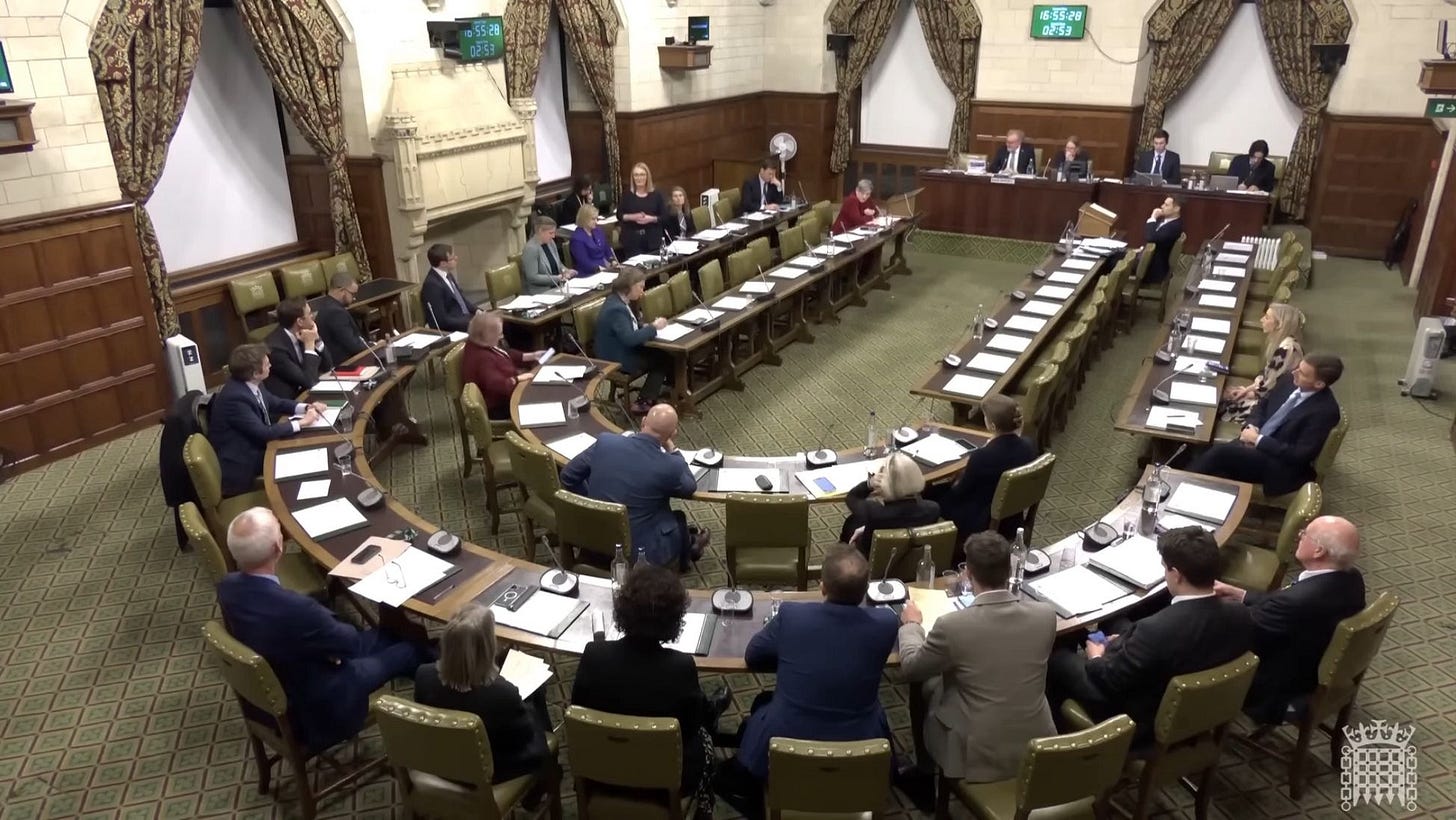
Westminster Hall debates cover an array of topics and attendance can be sparse. So we were extremely encouraged to count 24 MPs speaking or attempting to intervene during the 60 minute session.
This was a brilliant turnout, especially for an end-of-day slot after the close of government business. A huge thank you to all of you who wrote to your MPs: it worked! For the parliamentary nerds out there, this was a marked increase from last year’s Westminster Hall debate for World ME Day, where just 10 MPs spoke. Not only was turnout strong, but many MPs shared powerful interventions detailing their constituents’ experiences.
“I want to quickly mention one of those 25% of people with ME who are severely affected: my constituent Alice. She cannot leave her room, and is scared to call for treatment in case she has to go into hospital.” Jayne Kirkham (Labour, MP for Truro and Falmouth)
“Sarah Lewis was my constituent. I have here the prevention of future deaths report that was issued after the inquest. She took her own life, but was severely ill with ME. One thing that comes through very strongly is that she did not feel she was believed or taken seriously.” Kerry McCarthy (Labour, MP for Bristol East)
“One of my constituents, Nick, has ME and has described feeling as though he is stuck in a well without anyone to pull him out.” Tom Morrison (LibDem, MP for Cheadle)
We hope that the debate has sent a clear message to the government that this is an issue an increasing number of MPs are following closely and, crucially, hearing from their constituents about.
#2 - There’s a clear cross-party consensus that the government needs to go further
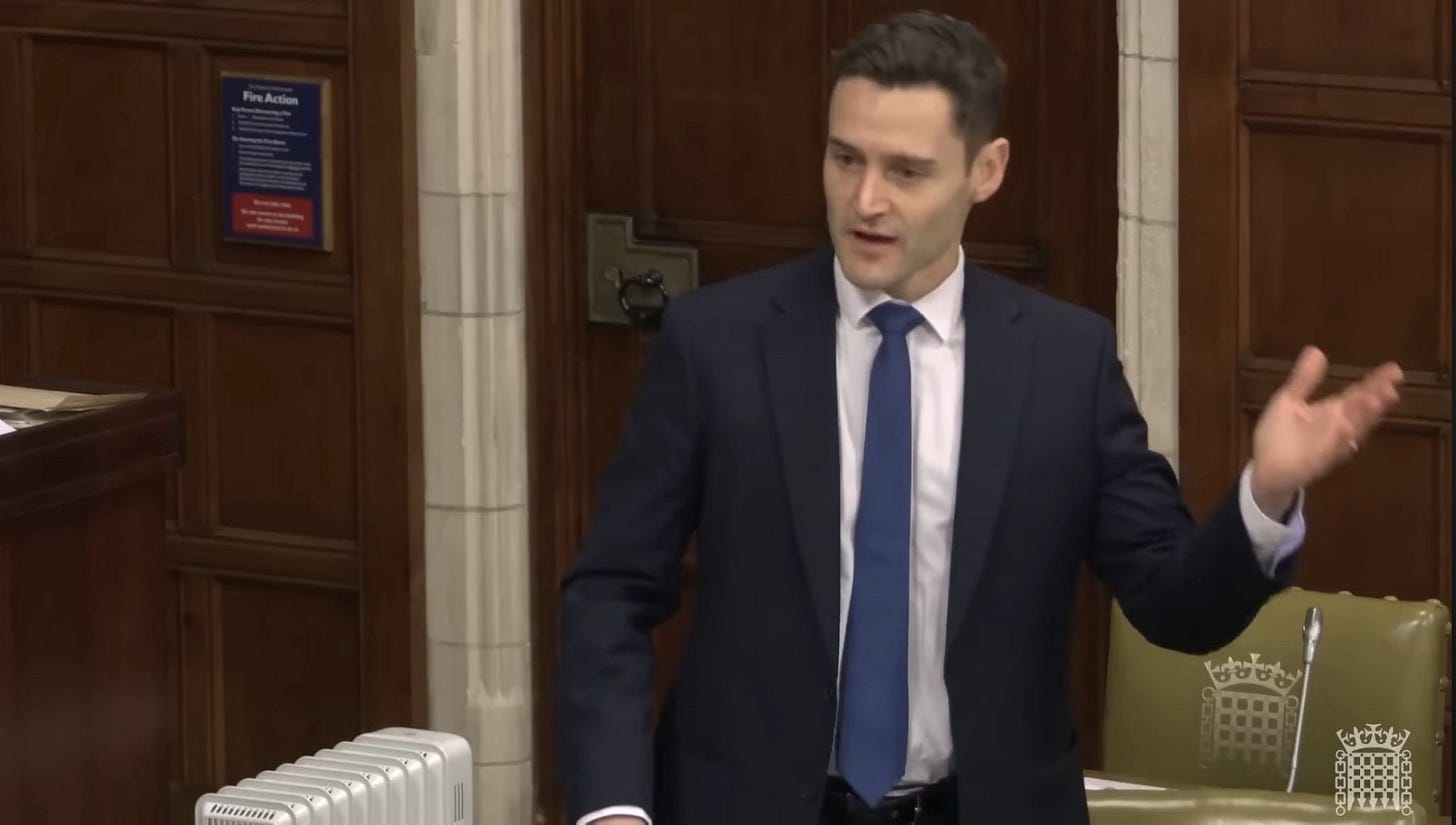
It was also encouraging to see cross-party consensus that the government needs to go much further in taking action to create meaningful change in the lives of people with ME.
Many MPs referenced the Final Delivery Plan for ME in their interventions, outlining ways in which it had fallen short. Funding was a prominent topic in the debate, with MPs across the house highlighting the need for more ambitious research funding.
“The ME delivery plan is fantastic, and a lot of people agree with it, but, importantly, there has been a lack of delivery.” Dr Luke Evans (Conservative shadow health minister, MP for Hinckley and Bosworth)
“I remain deeply concerned that the [delivery] plan falls short of delivering the meaningful change that is urgently needed by people living with those conditions.” Helen Maguire (LibDem spokesperson for primary care, MP for Epsom and Ewell)
“If the delivery plan felt threadbare, that is because no substantive new funding was attached to it. Before the plan was published, all 72 Lib Dem MPs signed a letter expressing our concerns about the anticipated lack of funding, which of course came to pass.” - Tessa Munt (LibDem, MP for Wells and Mendip Hills)
“Perhaps the Minister can reassure my constituents in Scarborough and Whitby that there is a future in which the ringfenced funding granted for research into other illnesses can be extended to ME.” Alison Hume (Labour, MP for Scarborough and Whitby)
#3 - Severe and very severe ME are finally getting airtime
We were also pleased to see severe and very severe ME finally getting some real airtime in parliament.
Severe ME was referenced 32 times during the debate, including during a significant section of Tessa Munt’s speech focused on patient safety risks for the most severely affected and a lack of government action to address these concerns. Tessa referenced the letter sent by over 200 healthcare workers last September for World Patient Safety Day calling for immediate action to save lives and the fact that these clinicians did not even receive a response.
Earlier in the day we organised a briefing with #ThereForME Ambassador Dr Binita Kane for Tessa Munt and chair of the APPG, Jo Platt, focused on malnutrition in very severe ME. In her remarks, Tessa spoke about one of the cases covered in our briefing:
“[Dr Binita Kane] told me about the case of a 25-year-old woman, a medical student, who developed severe ME after a viral infection in 2018. The young woman has been in an acute NHS hospital bed for 17 months with nutritional failure and has deteriorated to the point that palliative care is being instituted. Her family is being prepared for the worst—it is dreadful.
She has been disadvantaged not because of the individual clinical decisions, but because she suffers from a condition for which there is no safe or established service model. There have been multiple missed opportunities to prevent her condition progressing to this stage.”
It was heartening to later see Jo Platt confirming the APPG’s support for the commissioning of specialised NHS services for severe and very severe ME. Jo also highlighted the need for immediate action to improve patient safety while long-term solutions are under development and pushed the government for a meeting to discuss solutions.
“Patients are dying from nutritional failure because there is no commissioned service for severe ME. Some spend hundreds of pounds in hospital on private care without a proper pathway. Lives are at risk now and we cannot wait for long-term provision while patients suffer.
That is why, alongside the APPG, I am calling for the commissioning of specialised NHS services for severe and very severe ME with expertise in nutritional failure, and I would welcome the chance to meet the Government to discuss immediate solutions that can save lives today.”
#4 - The argument for research funding has been bolstered by German funding and DecodeME
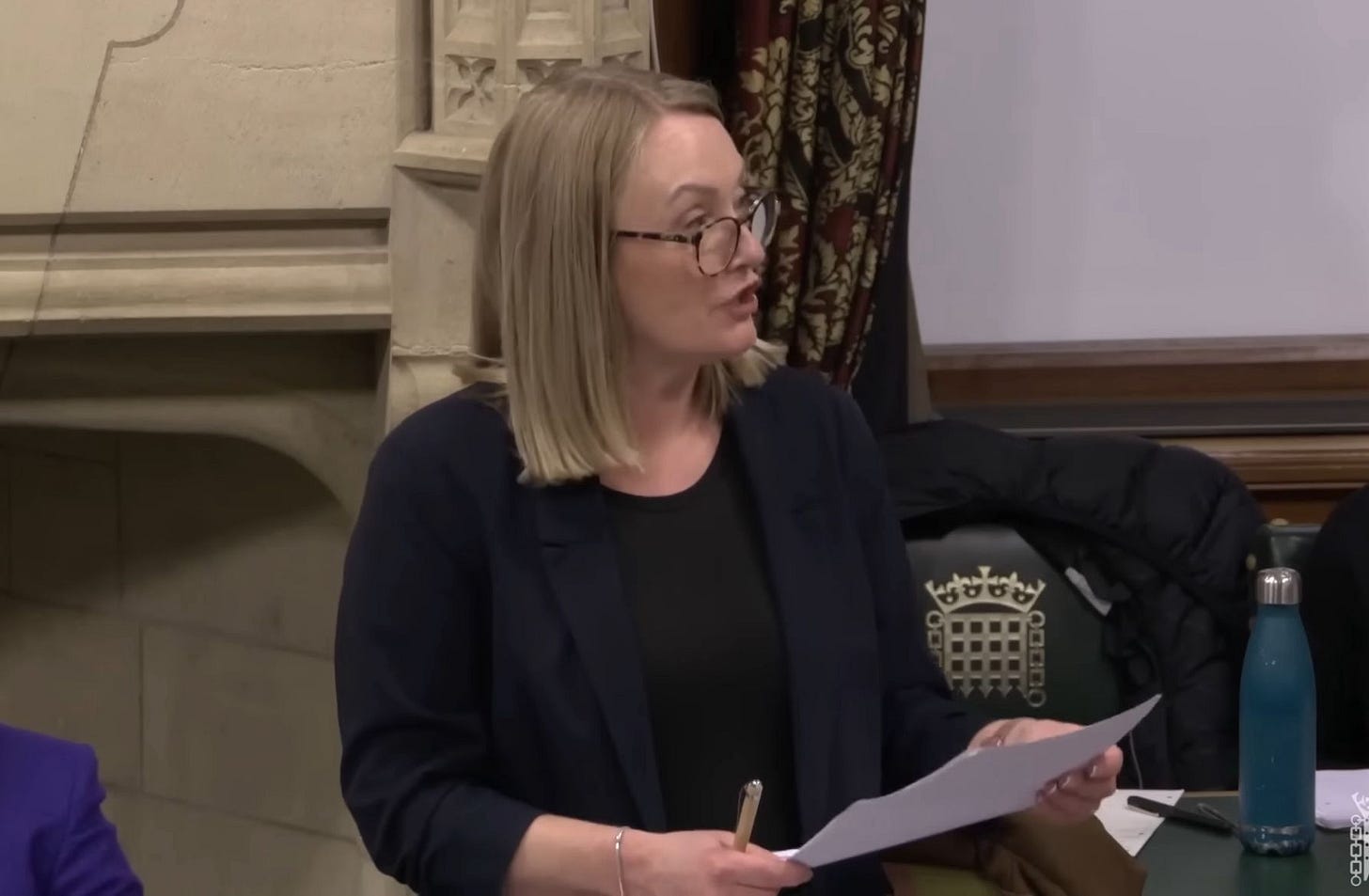
With impeccable timing, less than a week before the debate the German government announced that they were putting an eye-watering 500 million Euros into research over the next decade to understand the causes of post-infectious diseases and to develop treatments. The announcement explicitly included ME and Long Covid, which were described as one of the greatest public health challenges of the 21st century.
We weren’t the only ones to notice. It was fantastic seeing MPs referencing Germany’s funding as a gold standard for ambition. Between this and DecodeME’s recent findings, the argument for putting real money into ME research is feeling more compelling than ever.
“DecodeME has shown the brilliance of UK science, but funding remains far too limited. Germany has pledged €500 million to research with the aim of curing ME by the next decade. We need to be just as ambitious.” Jo Platt (Labour, MP for Leigh and Atherton and chair of the APPG on ME)
“Greater funding and support for research are also vital. Germany has pledged €500 million to research ME and find a cure for it. It is time that this country also stepped up and showed the same ambition.” Adam Dance (LibDem, MP for Yeovil)
“The University of Edinburgh’s DecodeME project has been a notable exception [...] [which] gives us a solid and compelling foundation for future research. Can the Minister explain what plans are in place for future funding to capitalise on this research?” Tessa Munt (LibDem, MP for Wells and Mendip Hills)
“The real cause for hope is Edinburgh University’s DecodeME study, which the chief executive of Action for ME, Sonya Chowdhury, described to me as being like a treasure hunt map with eight crosses where there is a genetic code that matches ME, but where we then have to go and dig up that treasure. That is what is now waiting to happen, and why funding is so important.” Jeremy Hunt (Conservative, MP for Godalming and Ash)
#5 DHSC rhetoric is getting stronger on how people with ME are being failed
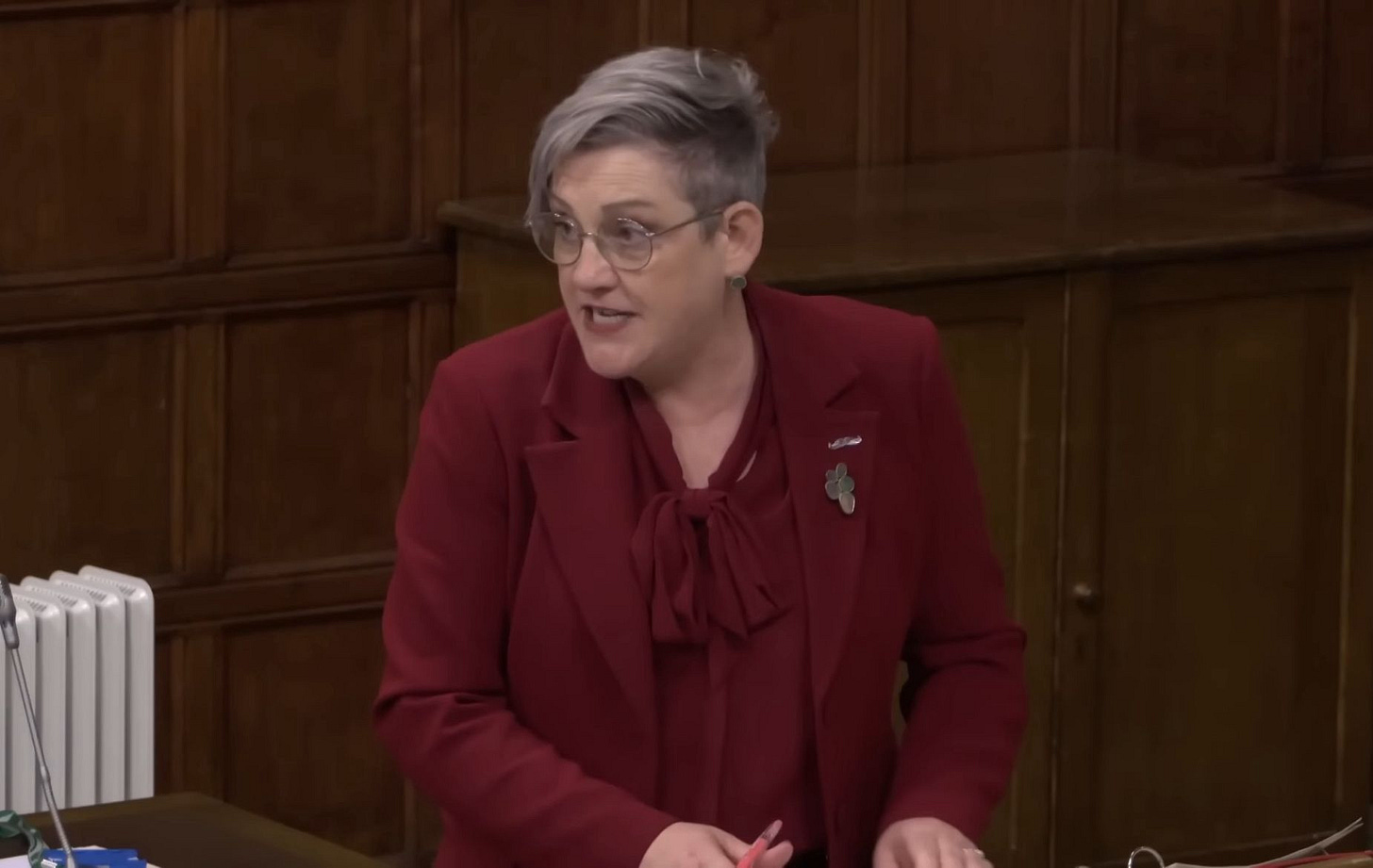
Finally, parliamentary convention sets aside time in a Westminster Hall debate for a government minister to respond to the issues raised. Ashley Dalton, Parliamentary Under-Secretary of State for Public Health and Prevention, represented the Department of Health and Social Care (DHSC). Promisingly, Dalton began her remarks by confirming that she would be happy to meet with both Tessa Munt and Jo Platt to discuss issues raised in the debate.
In her intervention, Dalton trotted out many of the usual government lines, which, in response to the many powerful stories raised by MPs, felt a little hollow. Maybe we’re optimists, but we did, however, note a strengthening in the government’s rhetoric.
Policy change is a slow process and understanding whether it’s in motion is often a case of reading between the lines. In her remarks Dalton pointed to the need to “ensure that every person living with ME/CFS is treated with dignity and compassion” and outlined ambitions for “equitable, evidence-based services”. Beyond that, she referenced the “urgent need for reform” and remarked that “we cannot and will not not allow such failings to continue”. She finished her intervention with the following commitment:
“ME/CFS has been overlooked for far too long. We are determined to change that. To everyone living with ME/CFS and to your families and carers, I say this: we hear you; we value you; we believe you; and we are committed to making the system work better for you and with you.”
Of course, as we’ve said time and time again, what really matters is not words but action. But we’re certainly intrigued to see Dalton saying (some of) the right words, coupled with Tessa Munt soon afterwards expressing intent to hold Dalton’s “feet to the fire”. We’re right there with you, Tessa.
We’ll see you next time.




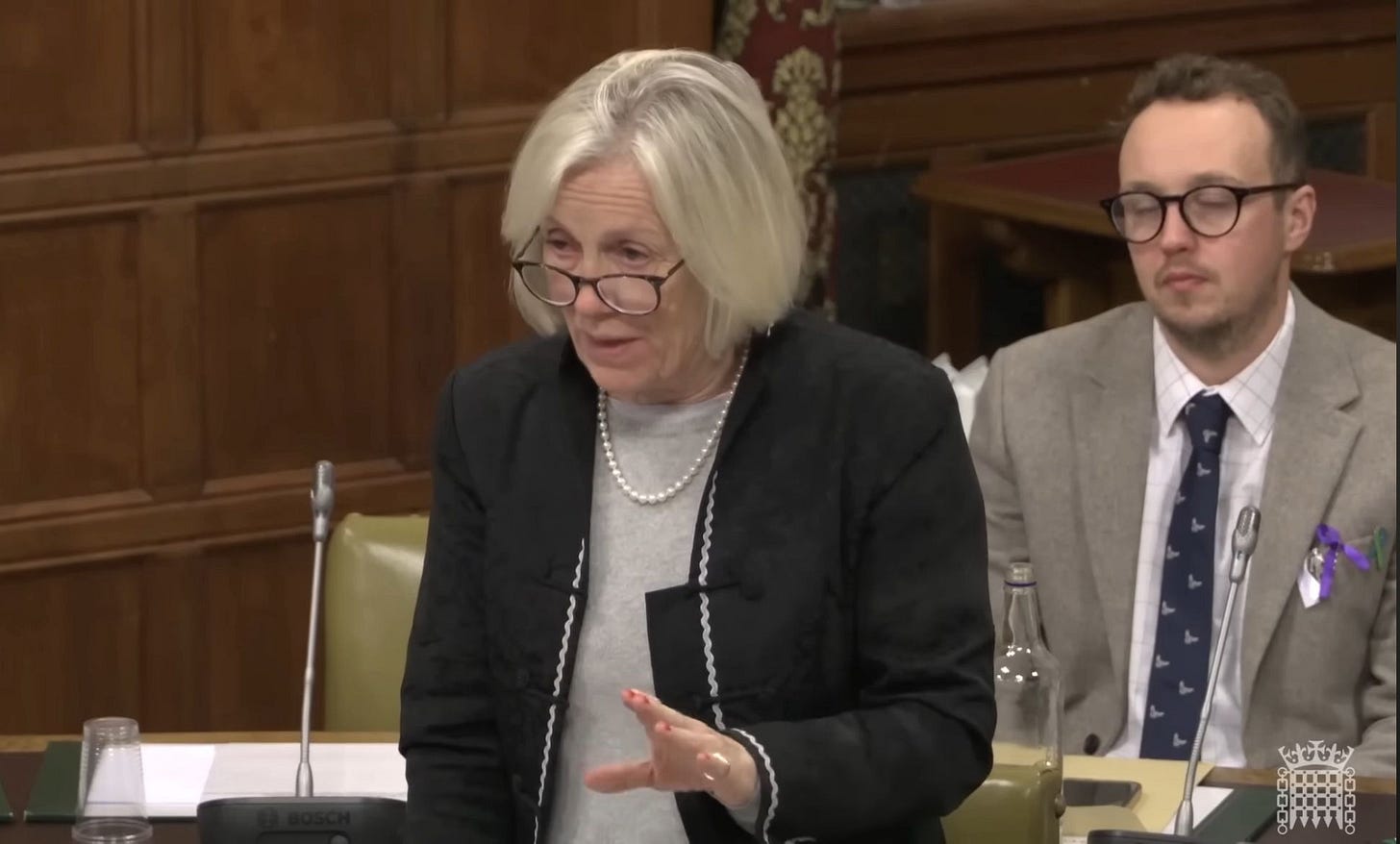
Thank you so much for all your work and all those involved especially Tessa Munt and Jo Platt for their determination. this was very positive to see despite the lack of government time scale/funding. Unfortunately I think Jeremy Hunt is more of a liability than a champion for ME, getting the numbers wrong (said 400'000 included the LC cohort) and giving the impression there's a curative treatment in America that would work for anyone who can access it, based on one constituent. He could create more misunderstanding if he spreads that type of misleading info. Considering he was briefed-- seemed like he didn't make an effort to understand the realities of ME. However - hopefully he can learn.... !
Thank you, my daughter & l watched the debate together. It’s good to see the profile of #pwME being raised at last - their stories are all so familiar 💔 We can only hope that real changes in care, support & research along with genuine understanding of this devastating disease are getting closer… 🫂💙🫂